Introduction & Analysis
This collection of open-source English-language news articles published over the past week highlights significant events and issues concerning Myanmar. They present a snapshot of the country's safety and security landscape. Here is a four-sentence analytical summary of the referenced sources:
The military junta, despite suffering significant territorial losses and relying heavily on airstrikes and forced conscription, is attempting to regain control through counter-offensives against ethnic armed groups and pro-democracy forces, even as internal clashes occur among resistance groups..
China exerts significant, complex influence in Myanmar, brokering ceasefires, securing its supply of heavy rare earth minerals from regions like Kachin and Shan states, and even threatening to block exports from rebel-controlled areas, while simultaneously operating a global surveillance state that monitors its citizens abroad and exports digital authoritarianism.
The conflict has fostered a severe humanitarian crisis marked by inadequate shelter, food, and medical access for displaced populations, and has enabled a booming cybercrime industry, primarily in Shan State, where trafficked workers are forced into scam operations shielded by militias and corrupt officials.
These internal conflicts carry significant regional implications, including heavy metal contamination in the Mekong River from Myanmar's mining operations, challenges to ASEAN's consensus-based diplomacy due to Myanmar's "my way" approach, and pressing foreign policy considerations for neighboring countries like Thailand and India regarding border security and engagement with various factions.
ASEAN
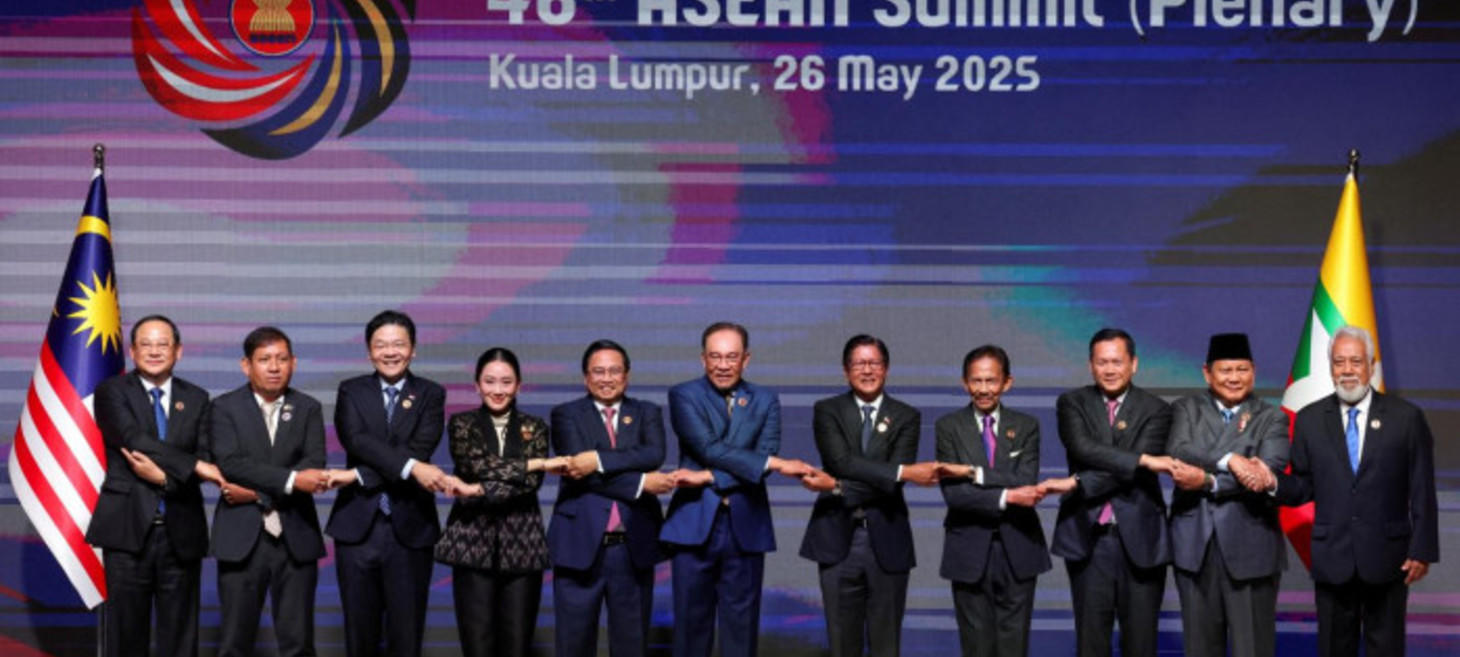
Myanmar's 'my way' vs Asean norms
Myanmar is challenging the long-standing "Asean Way" of consensus-based diplomacy with its "my way" policy, exemplified by its unexpected objection to Timor-Leste's admission if Dili continues to engage with the National Unity Government (NUG). This unilateralist approach clashes with the Asean Way's emphasis on consensus, restraint, and mutual respect, particularly given Myanmar's failure to fully implement Asean's Five-Point Consensus since the 2021 coup. The confrontation is a crucial litmus test for Asean, as it highlights the challenge of managing internal dissent and the need to refine its consensus mechanism to prevent any single member from holding the entire bloc hostage.
Census & Elections
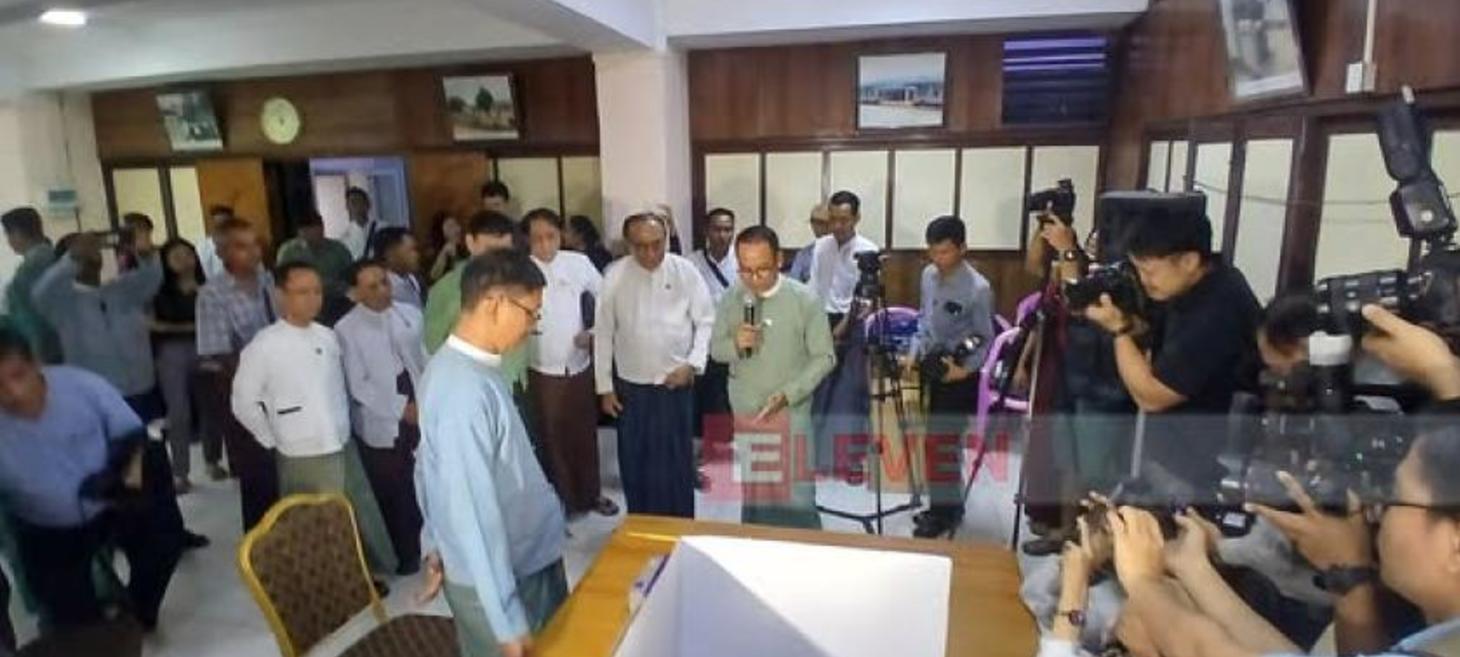
Myanmar to introduce electronic voting machines in upcoming general election
Myanmar will introduce Myanmar Electronic Voting Machines (MEVMs) for the first time in its upcoming general election. The Union Election Commission (UEC) has produced 2,500 MEVMs for public training and demonstration, with plans to produce over 50,000 units for the actual election. These machines are designed to be fast, simple, and secure, providing results within seconds, and do not include Internet, Wifi, Bluetooth, or mobile/computer operating systems, relying instead on a simple and secure microcontroller system.
Conflict
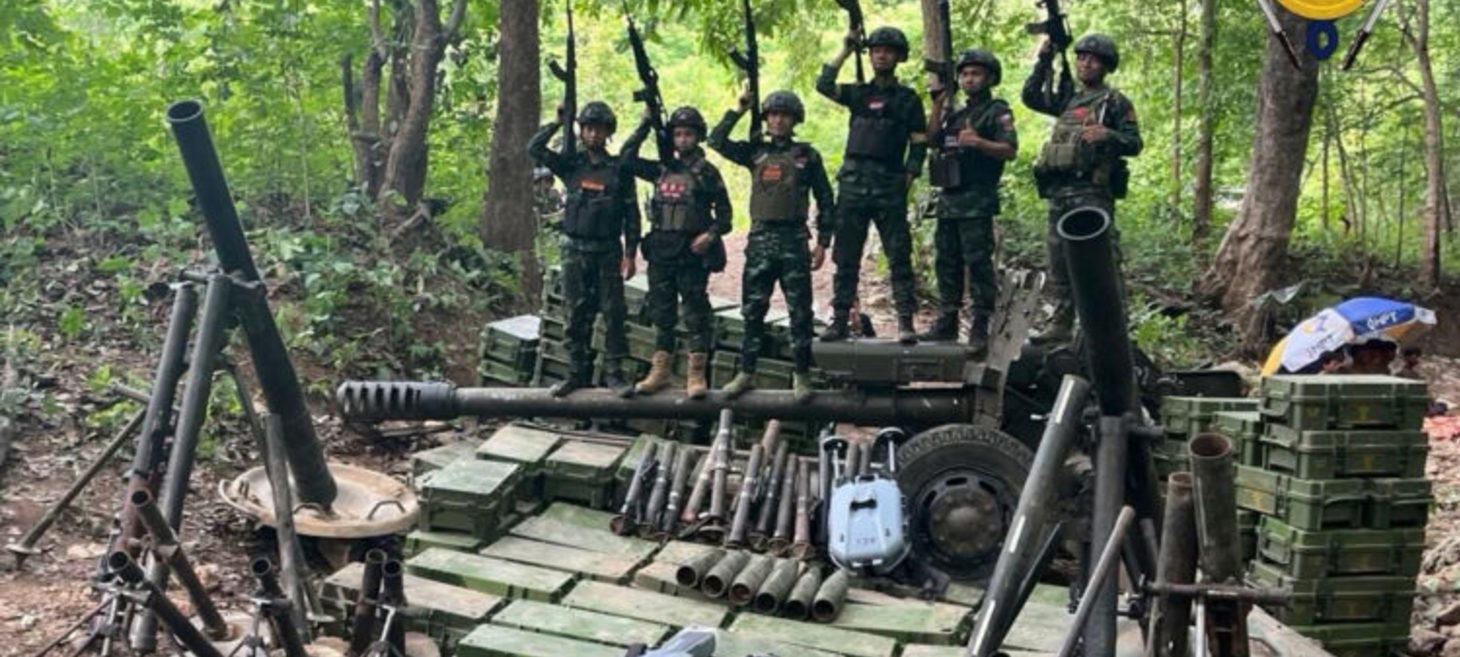
Karenni Rebels Capture Two Strategic Myanmar Junta Battalions
Karenni resistance forces captured two strategic Myanmar junta battalions (134 and 135) in Hpasawng town after over a week of fighting, which regained access to National Highway 5 and observers believe may pave the way for an advance on Bawlakhe. During the battle, the regime heavily relied on its air force, conducting dozens of daily airstrikes with various jet types, including Y12s that dropped mortars and resupplied forces. The Karenni resistance forces claimed responsibility for shooting down a junta FTC-2000 G fighter jet on Tuesday, while the regime reported a missing jet but attributed it to mechanical failure or extreme weather.
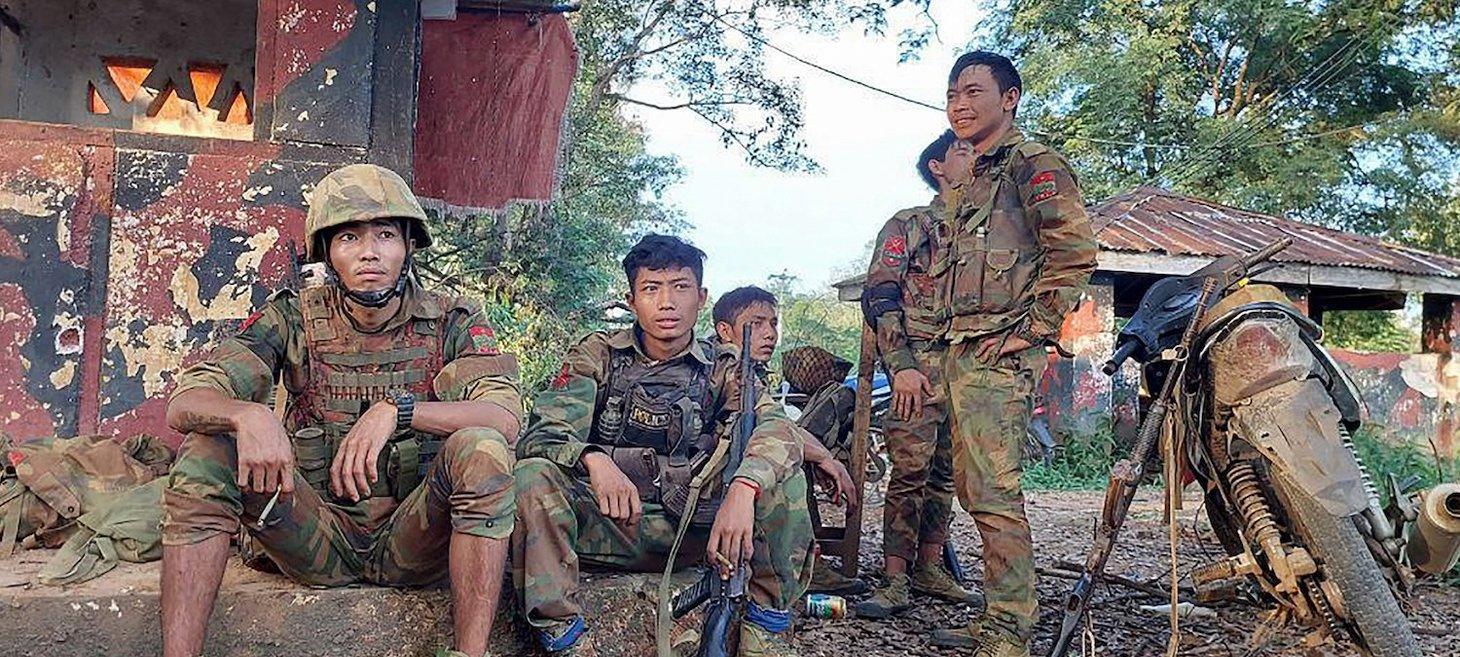
Fighting to the last: The TNLA digs in
The Ta'ang National Liberation Army (TNLA) is currently under severe military assault by the Myanmar junta in northern Shan State, especially near the strategically vital town of Nawnghkio, while also confronting economic pressures from a Chinese blockade. Despite the junta's demands during failed ceasefire talks to surrender territory gained during Operation 1027, the TNLA remains defiant, insisting it will not relinquish control of its hard-won areas and plans to defend them until talks resume. This resolve persists even as the TNLA faces internal challenges, including struggles to revive the local economy and provide public services, controversial recruitment practices, and sporadic tensions with allied ethnic armed groups over turf.
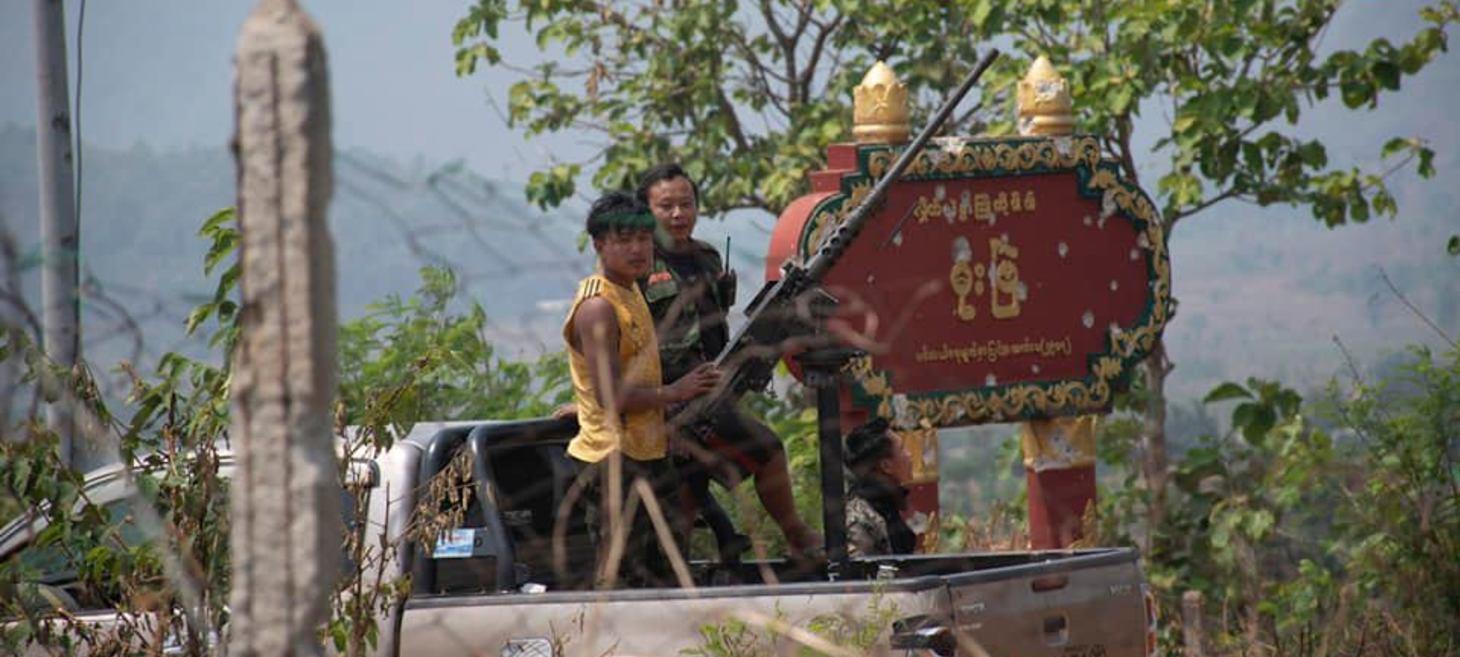
Junta retakes key Shan State town, launches clearance operations along Karenni border
The Myanmar military junta has retaken control of the strategic town of Moebye in southern Shan State, which had been under the control of anti-junta fighters for months. This move tightens the junta's grip on a vital gateway into Karenni State and allows them to secure supply lines along the Moebye-Loikaw road. Following the recapture, the junta is launching clearance operations to prevent resistance forces from regrouping, although the Karenni resistance has vowed to regroup.
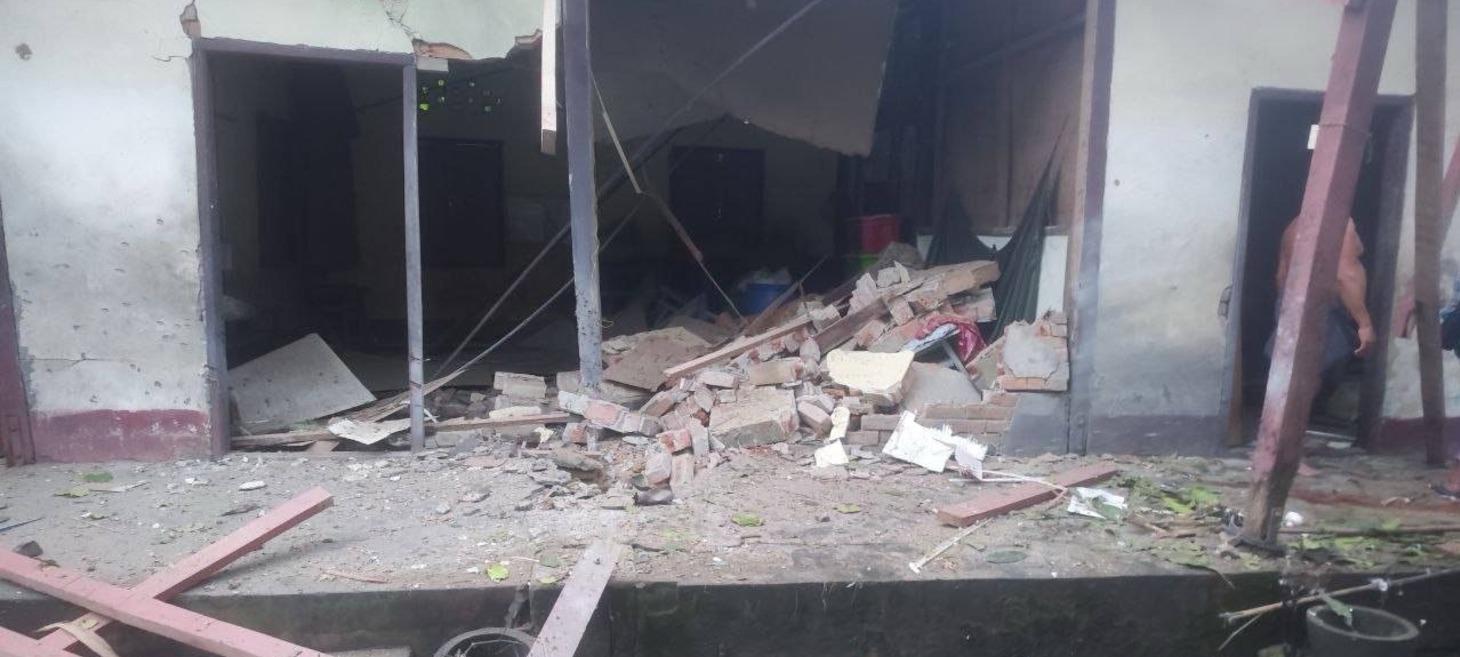
Junta drone strike kills six civilians, including children in Bago Region’s Kyaukkyi Township
On July 5, 2025, Myanmar's military launched a drone strike on a school in Taw Kyaung Pauk village, Kyaukkyi Township, Bago Region, which was known to shelter displaced civilians. The attack, involving two bombs with one exploding around 5:00 pm, killed at least six civilians, including two children aged one and six, and wounded two others. Local resistance forces alleged that the strike deliberately targeted civilians.
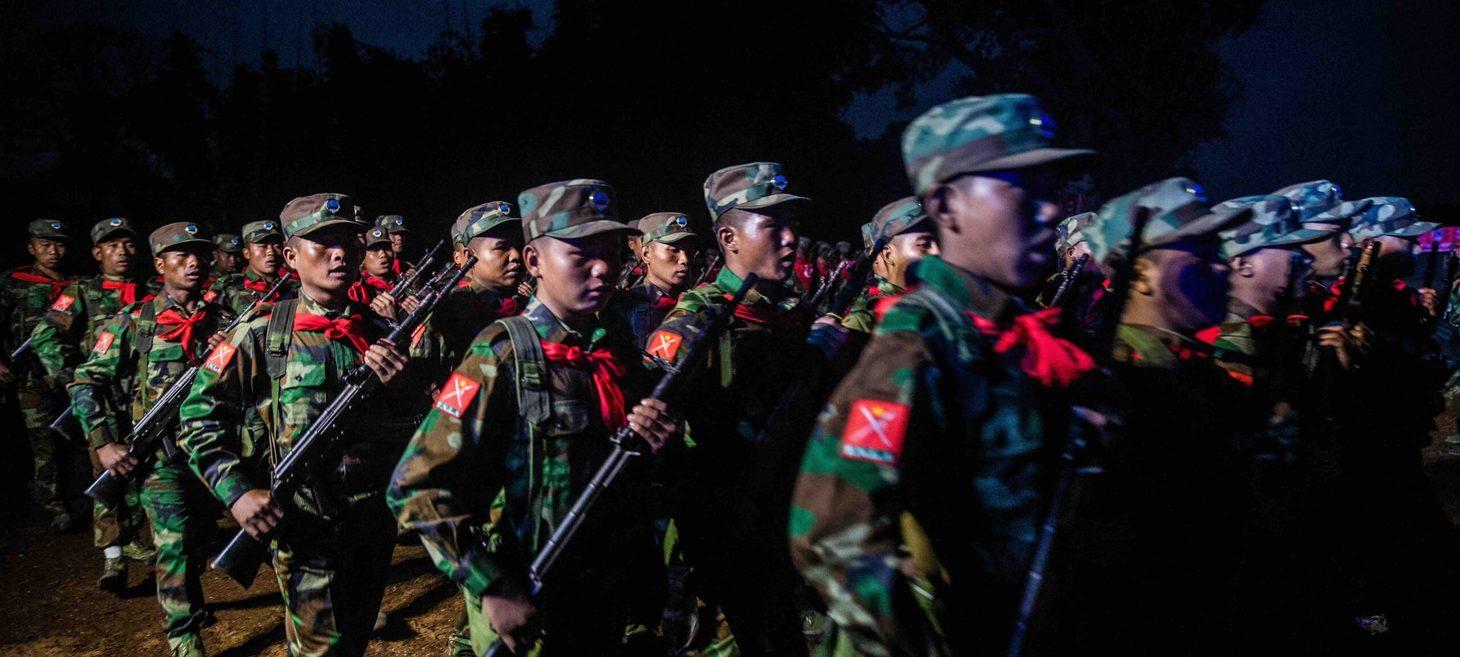
Myanmar armed groups rebuff junta’s “cooperation” appeal
The Myanmar junta recently issued a rare appeal for armed groups to cooperate and legally establish themselves within the framework of the law, ahead of a planned election. However, anti-coup forces, including ethnic minority armed groups and pro-democracy People's Defence Forces (PDF), swiftly rejected this invitation, which they view as a deceptive strategy to legitimize a "sham election" and consolidate the junta's power. This appeal occurs amidst significant battlefield reverses for the junta against these opposition forces, which rose up following the 2021 seizure of power.
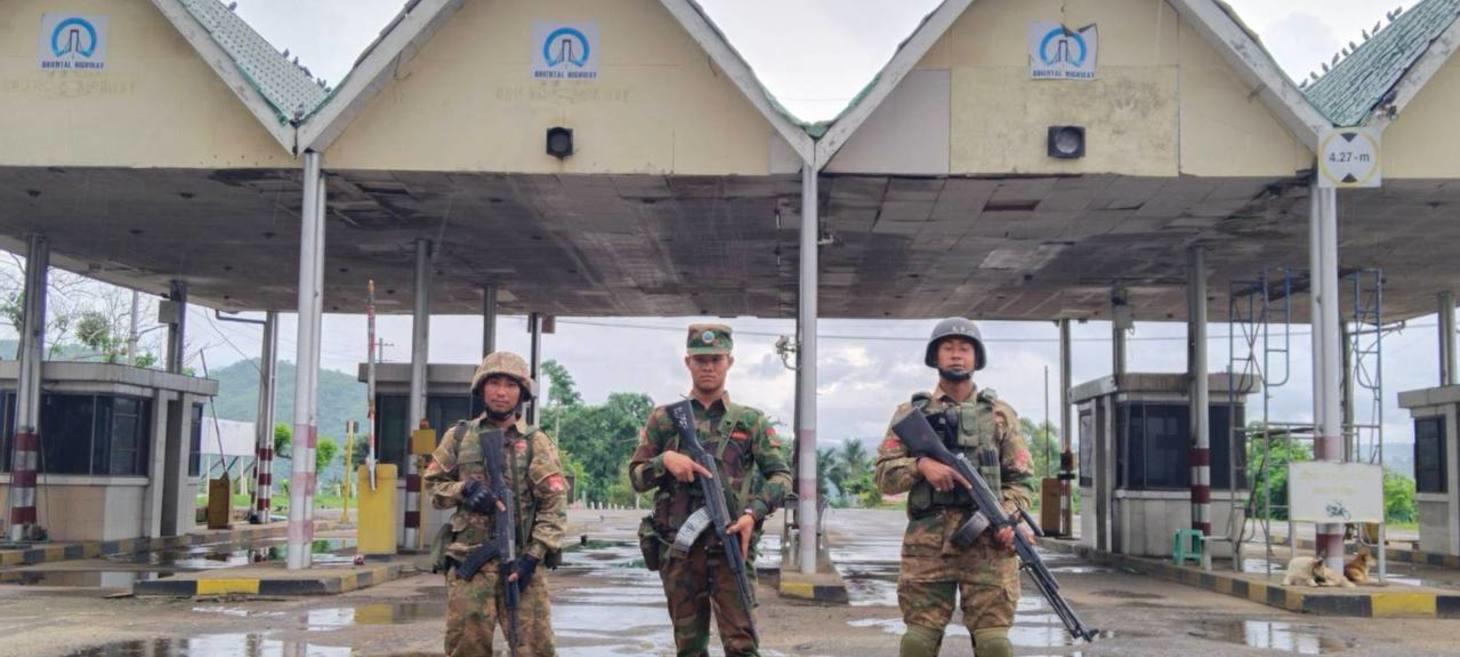
Myanmar junta tightens control over Nawnghkio-Pyin Oo Lwin road
The Myanmar military junta has tightened restrictions on the transport of food and medicine along the 35-mile road connecting Nawnghkio in northern Shan State to Pyin Oo Lwin in Mandalay Region. This move comes amid fierce clashes as regime forces move closer to Nawnghkio, which has been under the control of the Ta’ang National Liberation Army (TNLA) since June of last year. As a result, residents say they are no longer able to bring food or medicine through intensified checkpoints like Yin Ngoo Pin and Wekwin, with one woman reporting her medicines were confiscated even for medical treatment.
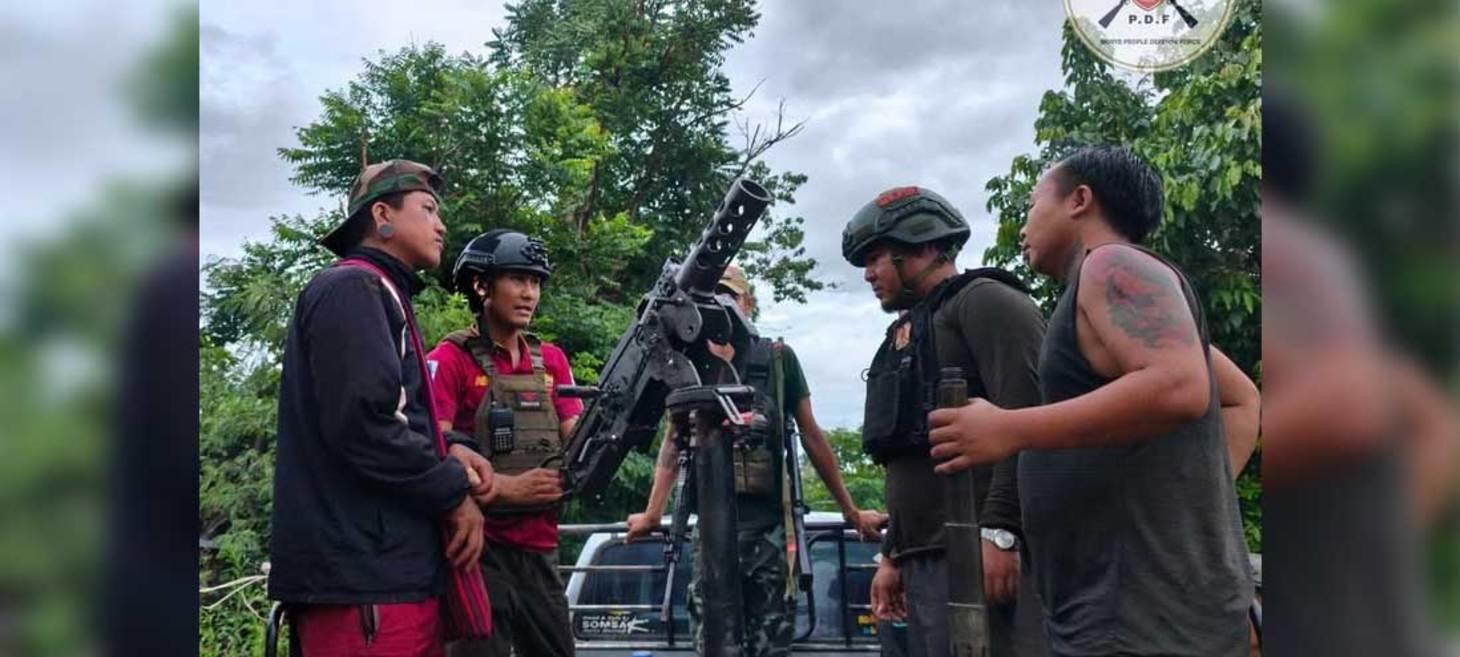
JUNTA REBOUNCING BACK MILITARILY
The military junta in Myanmar is militarily re-bouncing back, having recently recaptured Mobye Town in southern Shan State and intensified its offensive to retake Nawnghkio Town, which is held by the Ta'ang National Liberation Army (TNLA). These actions involve massive ground troops, air support, and artillery, causing civilian casualties and displacement. This military resurgence is part of the junta's grand strategy to gain territorial control and broaden its electorate base to manipulate upcoming general elections, aiming to re-establish a political landscape dominated by the military-backed Union Solidarity and Development Party (USDP).
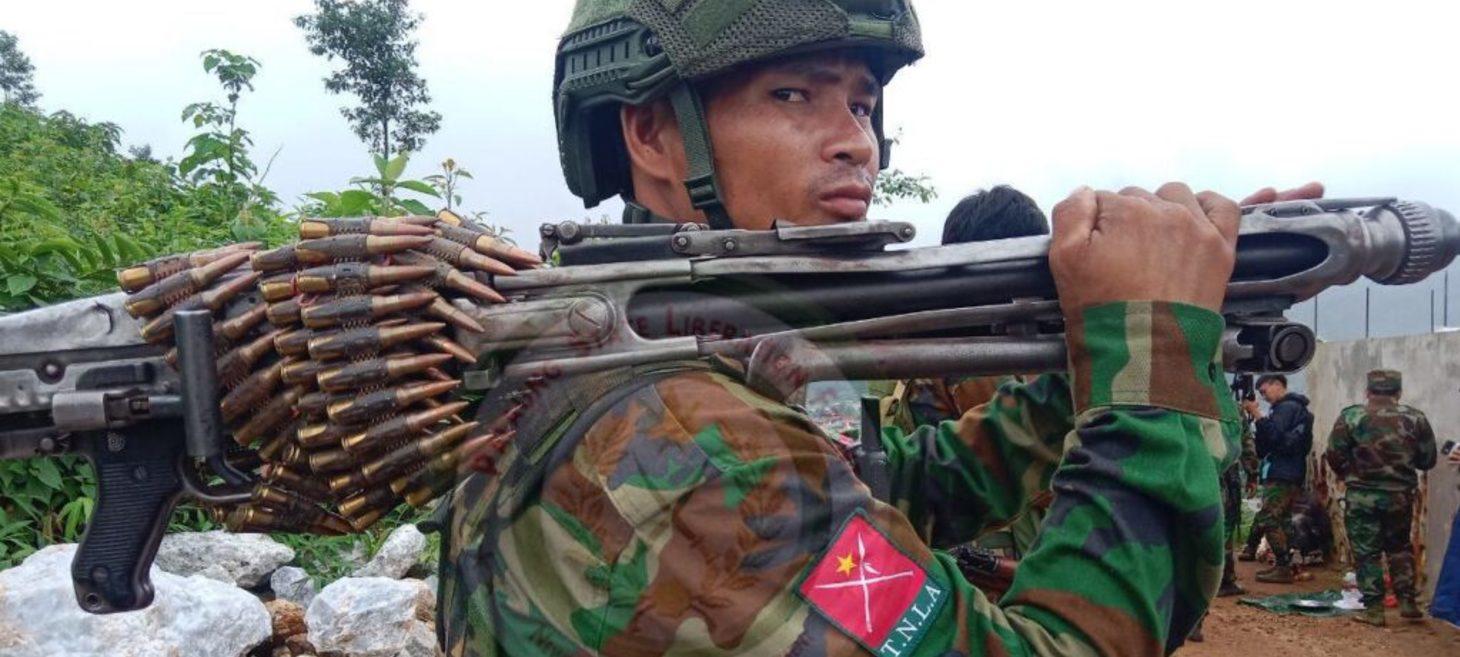
Myanmar junta forces advance within four miles of TNLA-controlled town as clashes continue
Myanmar junta forces are advancing within five miles of Nawnghkio Township in northern Shan State, a town controlled by the Ta’ang National Liberation Army (TNLA). The military is targeting TNLA-controlled towns with daily airstrikes, including Nawnghkio, Kyaukme, and Mogok, and intense fighting continues in villages such as Myet Chee Nu, Kyauk Taw, and Long San. Despite pro-junta propaganda channels posting photos implying captured villages, a resident reported that fighting is still ongoing and the army has not yet taken over everything.
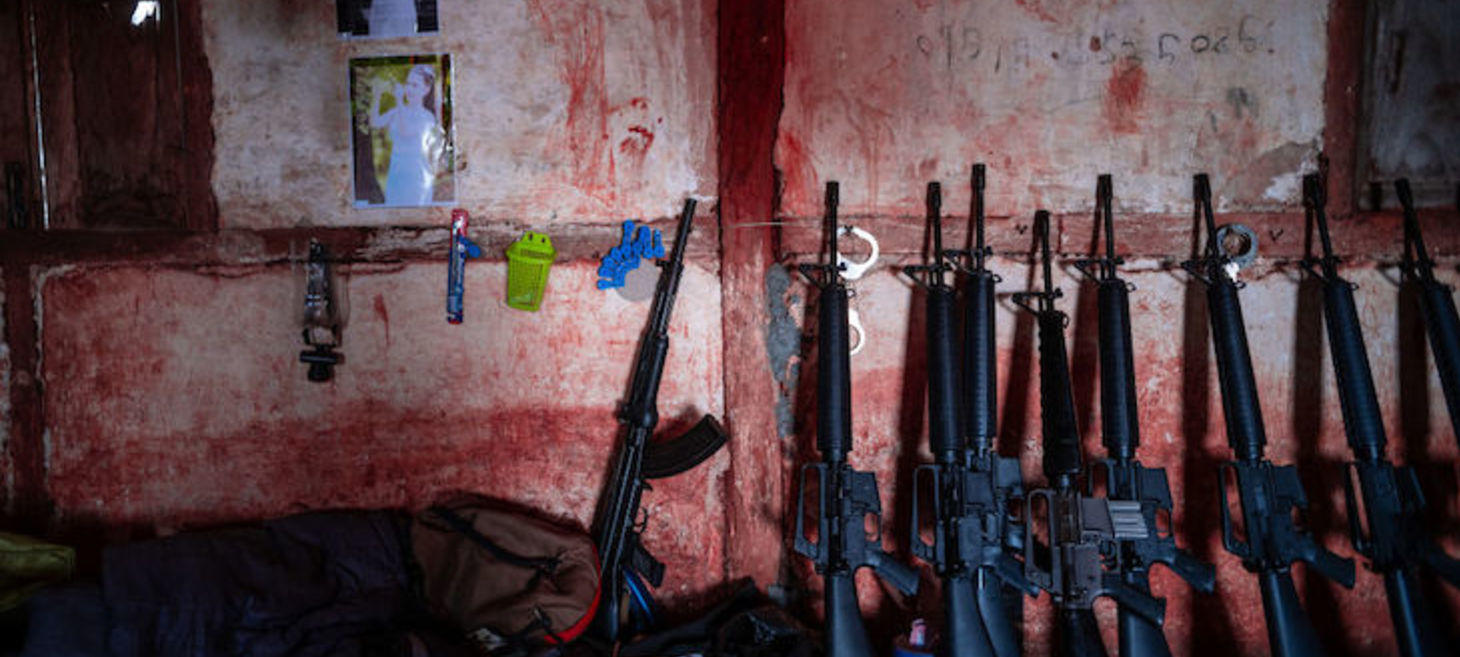
Myanmar’s junta is losing its grip on power
Myanmar's civil war has reached its most volatile stage since the coup, with resistance forces gaining unprecedented ground across ethnic and central regions, effectively governing vast areas, while the junta is stretched thin and believed to be fighting for survival. The junta relies heavily on devastating airstrikes, artillery, and scorched-earth tactics, deliberately targeting and killing civilians, with over 6,600 reported civilian deaths since the coup. The ongoing battle for Bawlakhe in Karenni State symbolizes the potential of a united resistance and, if captured, could mark a significant turning point towards the liberation of Kayah State and inspire further victories against the junta.
Conscription
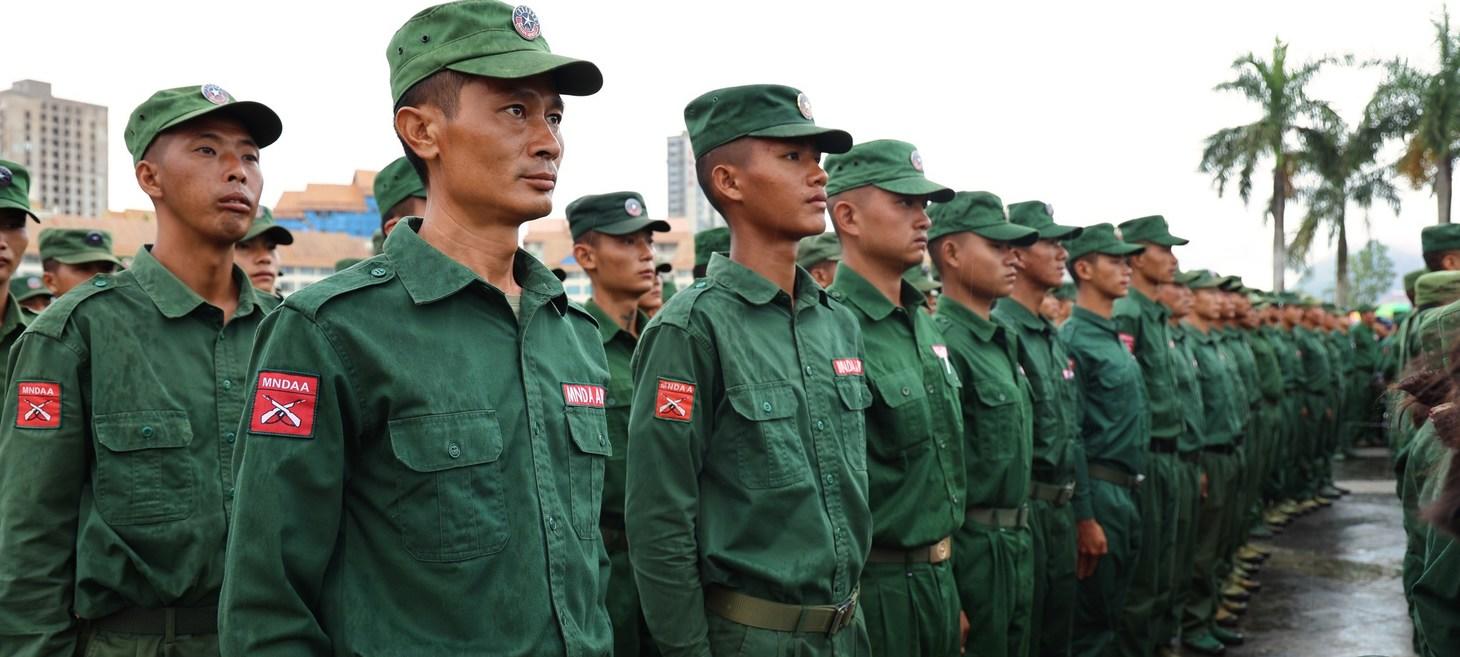
MNDAA conscripting men in Lashio Township villages
The Myanmar National Democratic Alliance Army (MNDAA) is reportedly conscripting men in villages in Lashio Township, enforcing a mandatory military service requirement for one member aged 18 to 40 from each household outside urban wards. Village administrators have received orders from the MNDAA to identify these individuals for enlistment, a demand also previously made in Hsenwi. Although the MNDAA retains de facto authority over most of Lashio Township, they have returned control of the urban center to the Myanmar military in accordance with a ceasefire agreement brokered by the Chinese government.
Crime & Narcotics

Inside Visa’s AI-powered war on cyber crime as fraudsters run global scam centres from Myanmar
Visa is engaged in an AI-powered war on cybercrime, battling sophisticated criminal organizations that operate like corporations, some even employing chief risk officers to determine operational risk appetite. These modern fraudsters increasingly target consumers with systematic scams—often involving human-trafficking victims in places like Myanmar—and leverage readily available fraud toolkits, software, and services on the dark web, mimicking legitimate tech companies. To combat this, Visa has invested US$12 billion in AI-powered fraud detection capabilities over five years, operating global fraud command centers to analyze data streams, monitor potential cyberattacks, and disrupt payment scams across its networks worldwide.
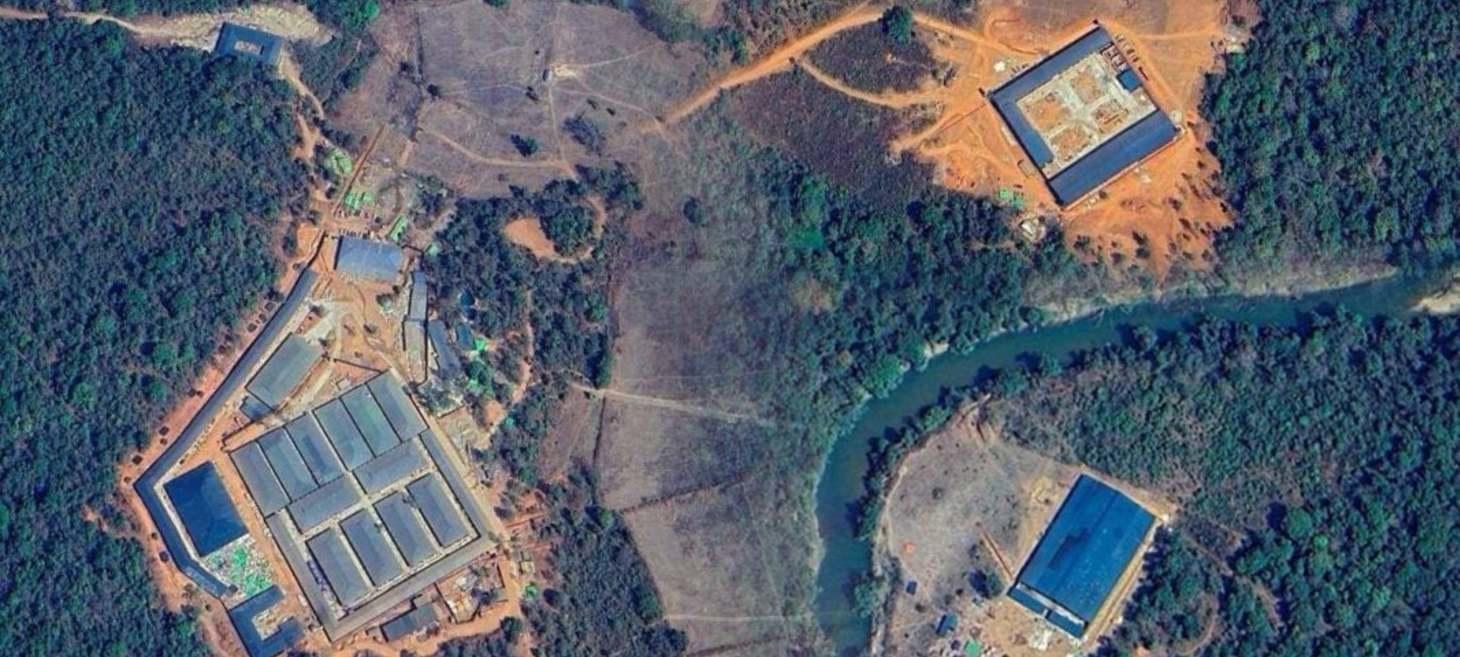
Cybercrime Flourishes in Shan State Amid Militia Rule and Military Collusion
Cybercrime, known as zha pian (诈骗), has become a booming underground industry in Shan State, exploiting desperation, fueling corruption, and exposing a deep humanitarian and security crisis in Myanmar. These operations involve trafficked workers, often Chinese nationals, forced into scamming compounds protected by militias, ethnic armed groups, and corrupt military officials, with many Shan youth joining as a means of survival due to economic ruin and conflict. Despite joint crackdowns by authorities and groups like the Three Brotherhood Alliance, these scam centers persist due to high-level complicity, bribery, and the deeply interwoven nature of cybercrime with the country's power structures, extending the threat beyond Myanmar's borders.
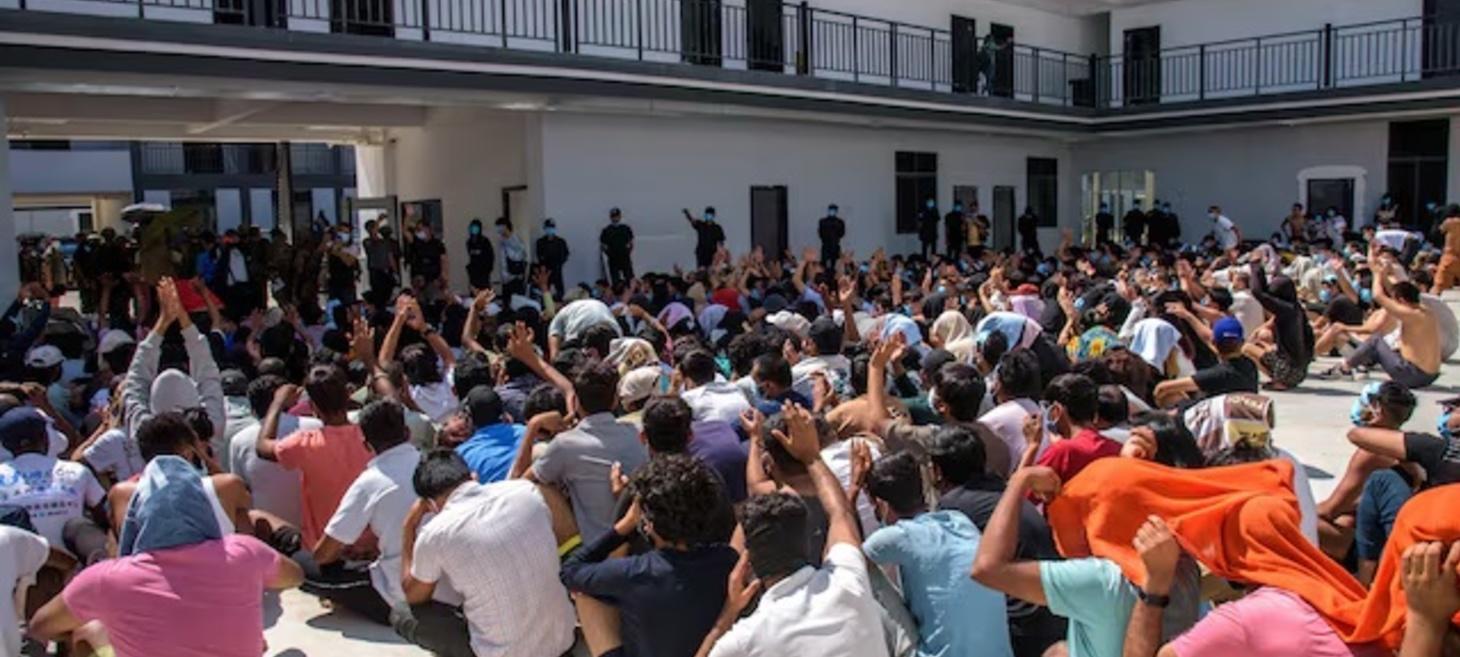
China, Myanmar, Thailand endeavour to eradicate telecom fraud networks
China, Myanmar, and Thailand are actively engaged in a joint endeavor to eradicate telecom fraud networks. This initiative aims to combat illicit operations, highlighting an ongoing international collaboration among the three nations.
Education
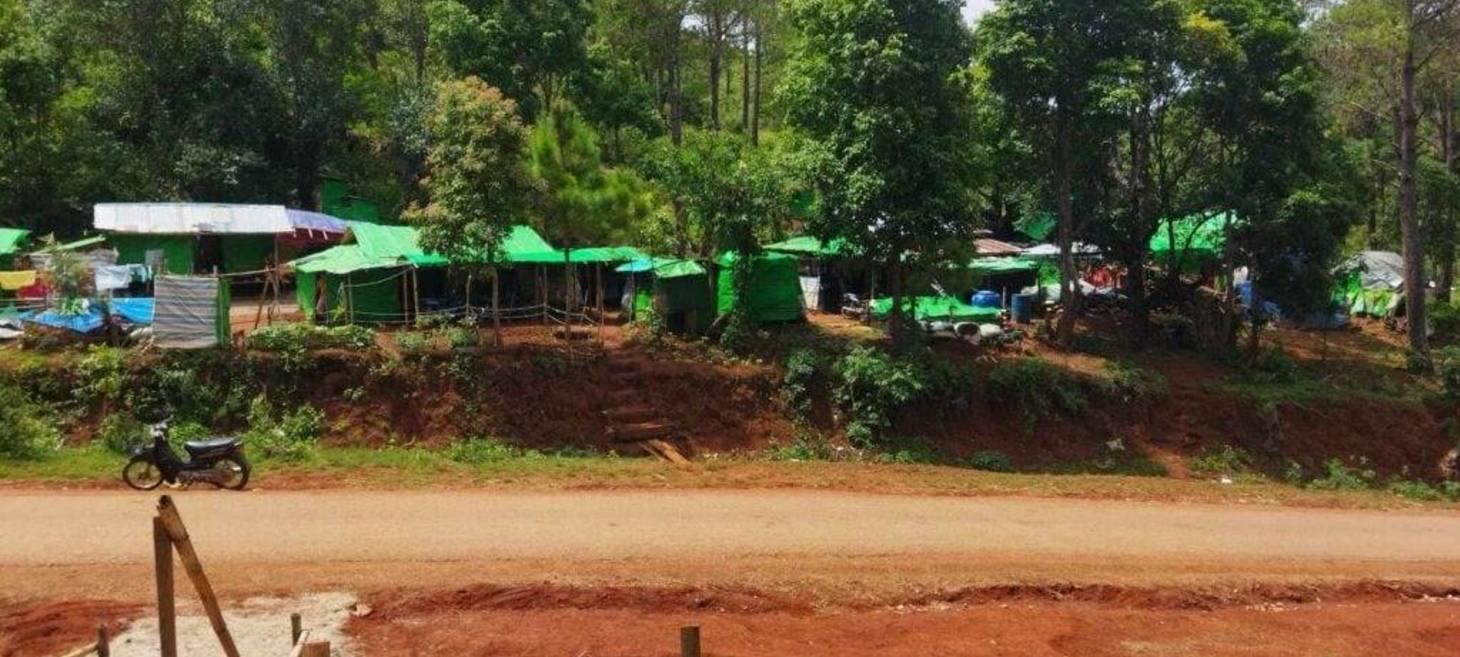
Displaced Families Build Makeshift School Amid Dire Shortages on Shan–Karenni Border
On the remote Shan–Karenni border, displaced families from the Metta Yaung Chi refugee camp are constructing a makeshift school to provide education for their children, three years after fleeing violence following Myanmar's 2021 military coup. This initiative arose because children previously faced dangerous and impassable journeys to a school in Bikin village, and families could not afford fuel or ensure safety. The school, built by parents and volunteer teachers, currently serves over 40 children but suffers from severe shortages of essential supplies, proper infrastructure, and funding for teachers, who often receive little to no salary.
Ethnic Issues
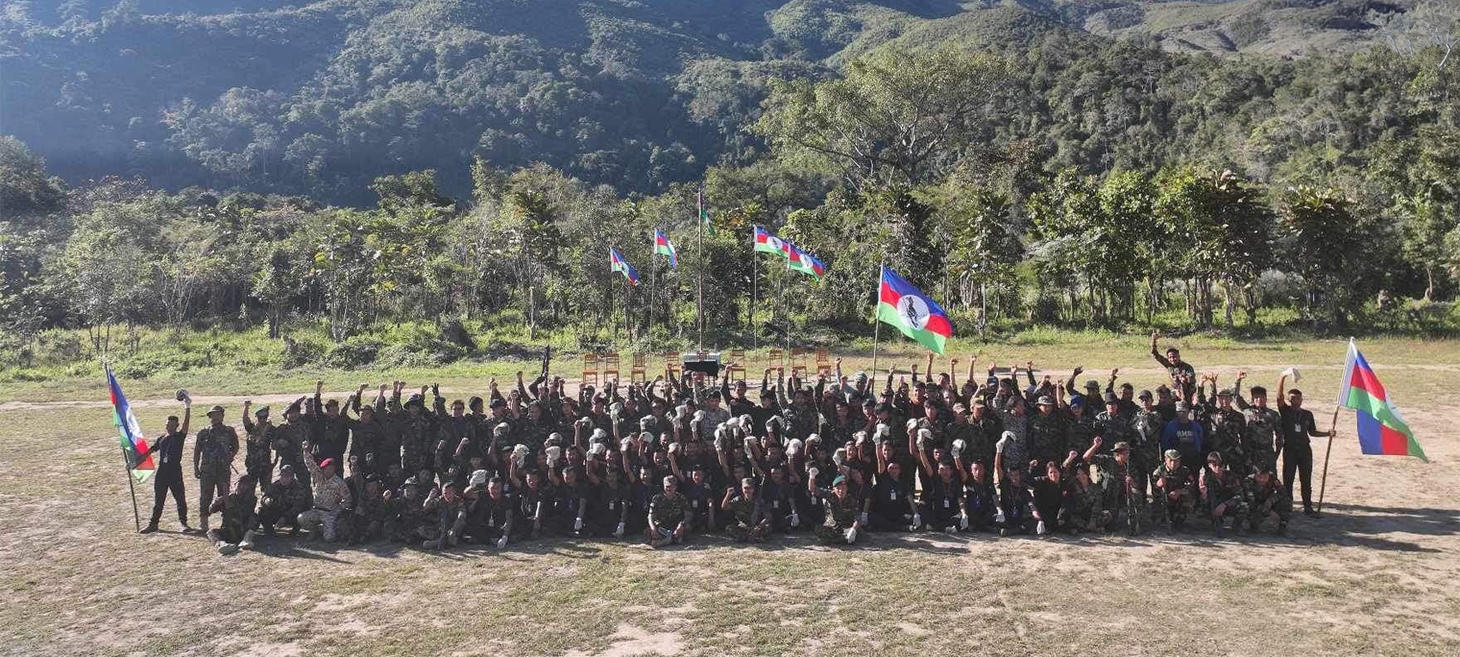
Chin Resistance Tensions Boil Over as CNA Seizes Rival’s Myanmar HQ
Tensions between rival ethnic Chin armed groups have escalated, with the Chin National Army (CNA) reportedly seizing the Chin National Defense Force (CNDF) headquarters, Camp Rihli, while the CNDF was negotiating to resolve a dispute. This seizure is believed to be retaliation for the CNDF's reported capture of Rikhawdar town from CDF-Hualngoram, who are allies of the CNA. Amidst the escalating conflict, Chin communities and advocacy groups are calling for the resistance groups to resolve tensions through dialogue and prioritize their common goal of resisting the military regime.
Foreign Affairs

China’s Surveillance State Watches Everyone, Everywhere
China has established an unprecedented domestic surveillance apparatus with over 500 million cameras and initiatives like the Sharp Eyes Project, achieving "full coverage, full network sharing, full-time availability and full control" to monitor its citizens and prevent dissent. This extensive system has expanded into a global operation, utilizing advanced digital surveillance (including spyware and platforms like WeChat), establishing overseas police service stations, and employing proxy repression tactics through family harassment to target dissidents in at least 36 countries. Such transnational surveillance fundamentally challenges international sovereignty and human rights norms, imposing China's model of digital authoritarianism on diaspora communities worldwide, while democratic responses remain fragmented and often inadequate.
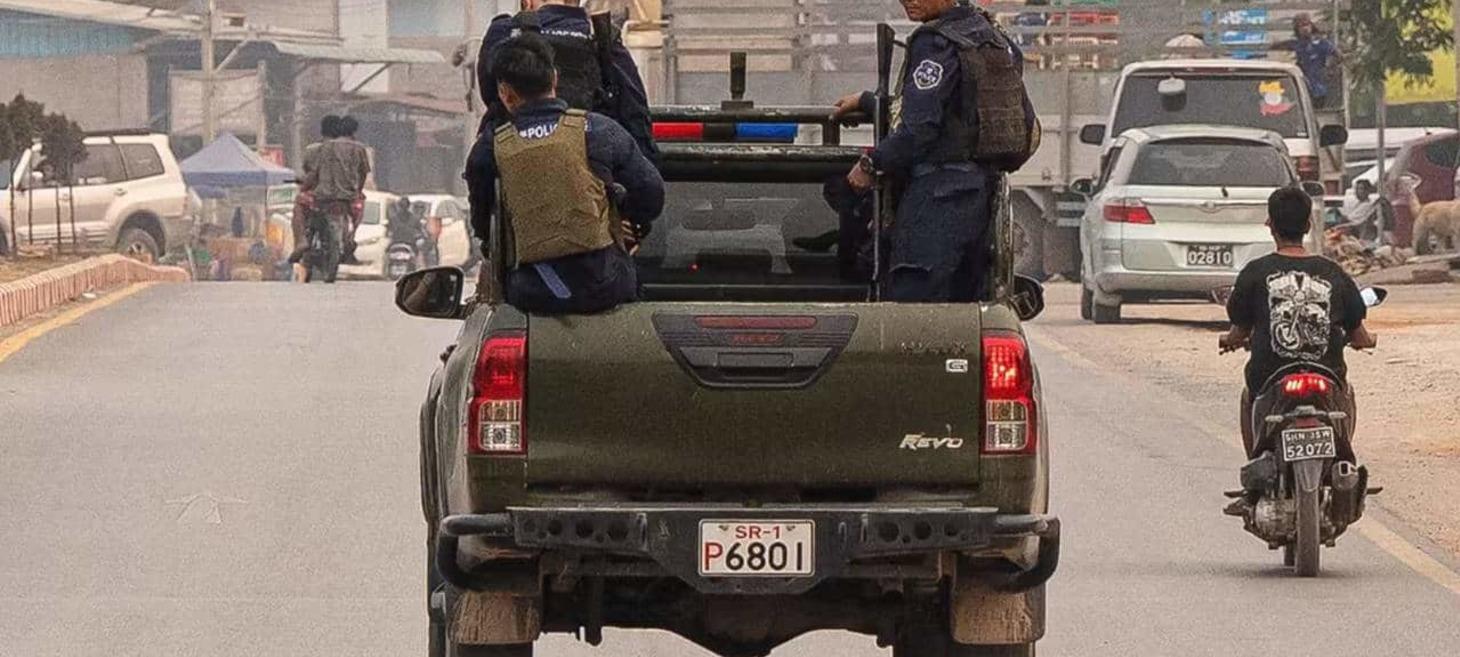
Myanmar’s a hotbed of Big Power rivalry. India can’t afford a hands-off policy there
Myanmar is currently in a decisive phase of civil war, with numerous ethnic rebel armies and pro-democracy armed groups controlling large parts of the country, significantly reducing the military junta's control. China plays a crucial role due to its reliance on Myanmar for approximately half of its rare earth supply, leading it to support both the country's army and key ethnic rebel groups like the United Wa State Army (UWSA) to secure resource exploitation and maintain stability in regions vital for its supply chains. Consequently, India, which has maintained a wait-and-watch policy, now faces multiple destabilizing forces on its sensitive northeastern border and is compelled to devise a strategy to engage with armed rebel groups controlling adjacent provinces to protect its critical connectivity projects, such as the Kaladan Multimodal Transport project and the Golden Trilateral Highway.
General News
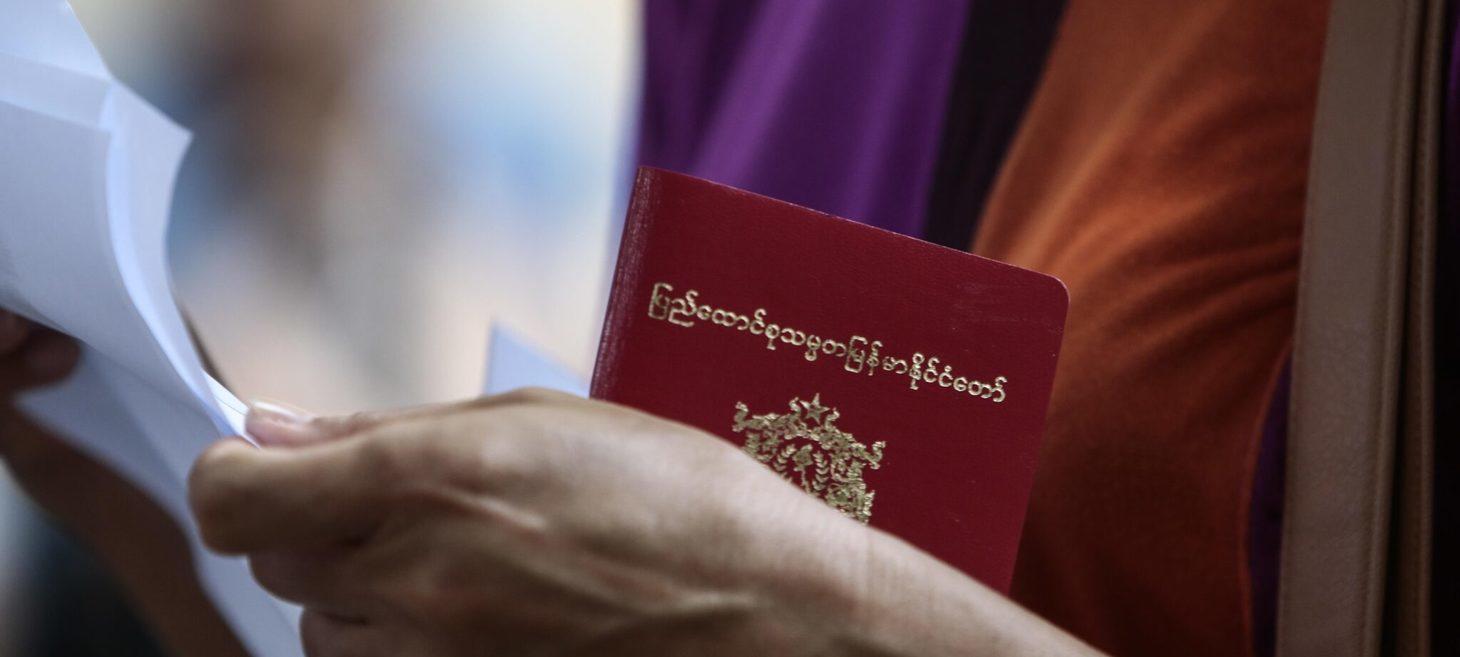
Relatives of Myanmar civil servants restricted from travelling abroad
The Myanmar military regime has stopped allowing the spouses and children of public employees to hold passports or leave the country without special permission, a new order in force since June indicates. This new restriction requires close relatives of civil servants to obtain endorsement from departmental heads and junta-appointed union ministers for international travel, even for reasons like education or medical treatment. This move is the latest by the regime to stem the exodus of citizens fleeing its rule and expands previous foreign travel bans that applied to civil servants and armed forces personnel and their families.
Humanitarian
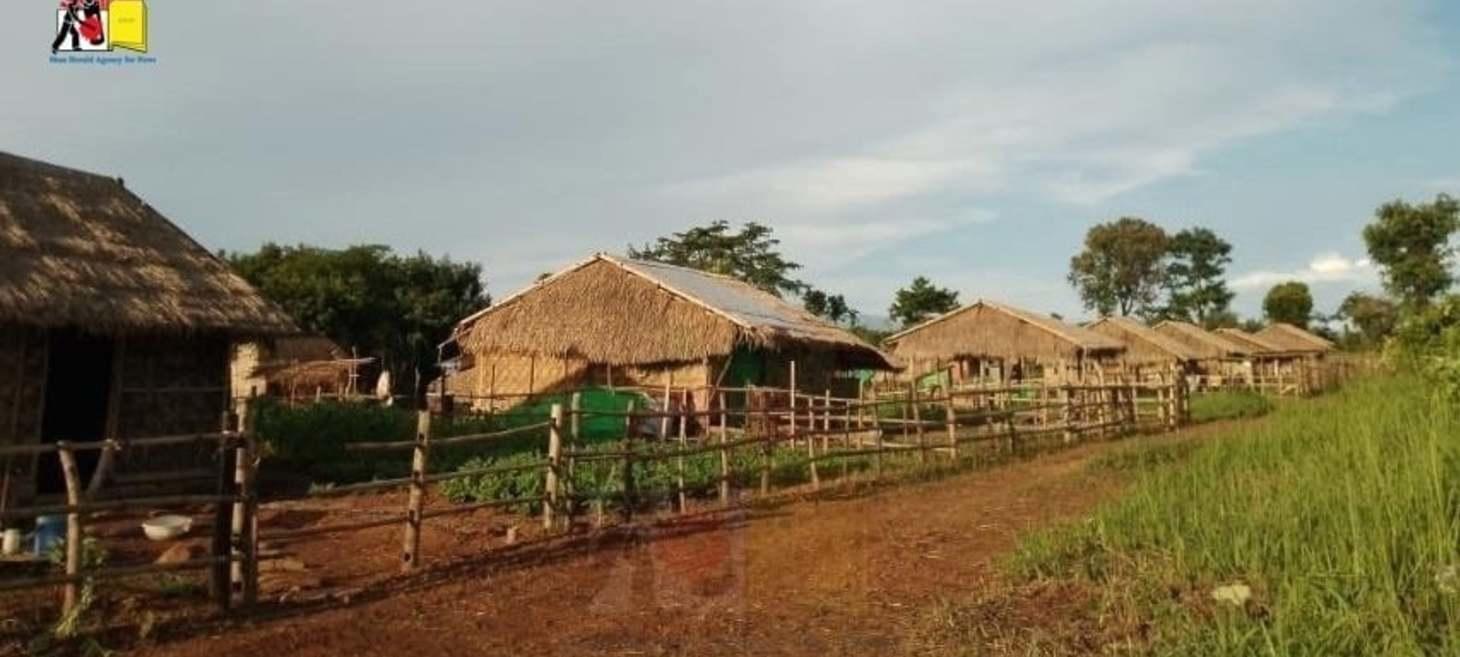
Shan State IDP Crisis Demands Urgent Aid as Military Offensive Spreads
A significant internally displaced persons (IDP) crisis is unfolding in Shan State, Myanmar, largely due to military offensives by the Myanmar military and the Pa-O National Organization (PNO) militia, which have displaced over 8,000 people from 13 villages in eastern Pai Khun Township and hundreds of families from northern Shan State. These displaced communities, primarily women, children, and the elderly, are facing dire shortages of healthcare, food, shelter, clean water, and basic medical supplies, with their precarious living conditions worsened by monsoon rains and military checkpoints blocking access to essential services. Although local volunteers are providing limited aid, the protracted humanitarian emergency necessitates urgent intervention from humanitarian organizations and international donors to provide long-term solutions for the thousands at risk.
Natural Resources
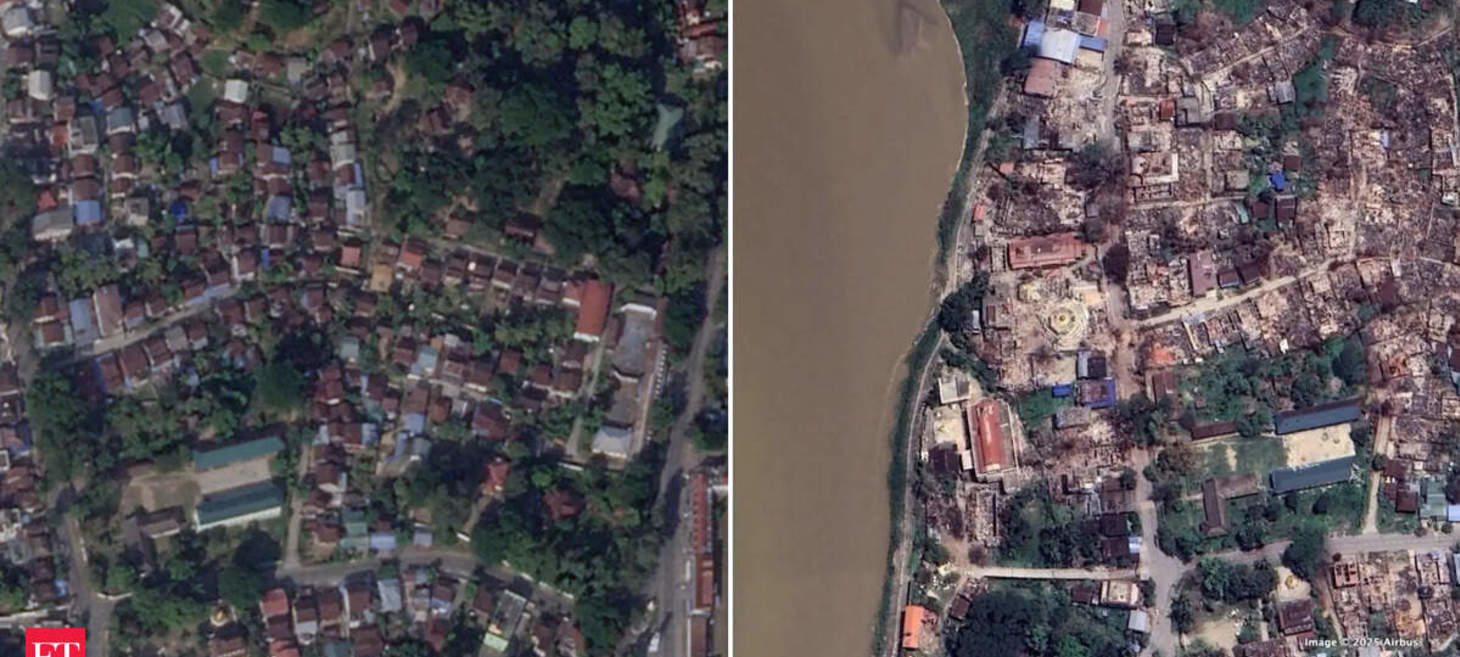
How one tiny Myanmar town controls the globe's rare earth supply and is holding the world hostage
Bhamo, a small yet strategically vital town in northern Myanmar, holds almost half of the world's heavy rare earths, minerals crucial for electric vehicles and wind turbines. An ongoing civil war between the Kachin Independence Army (KIA) and Myanmar's military junta for control of Bhamo has significantly disrupted mining operations and rare-earth exports, impacting global supply chains. China, possessing a near-monopoly on processing these minerals, has threatened to block purchases from KIA-controlled territories unless the militia ceases its efforts to seize full control of Bhamo, aiming to protect its economic interests and potentially causing rare-earth prices to spike.
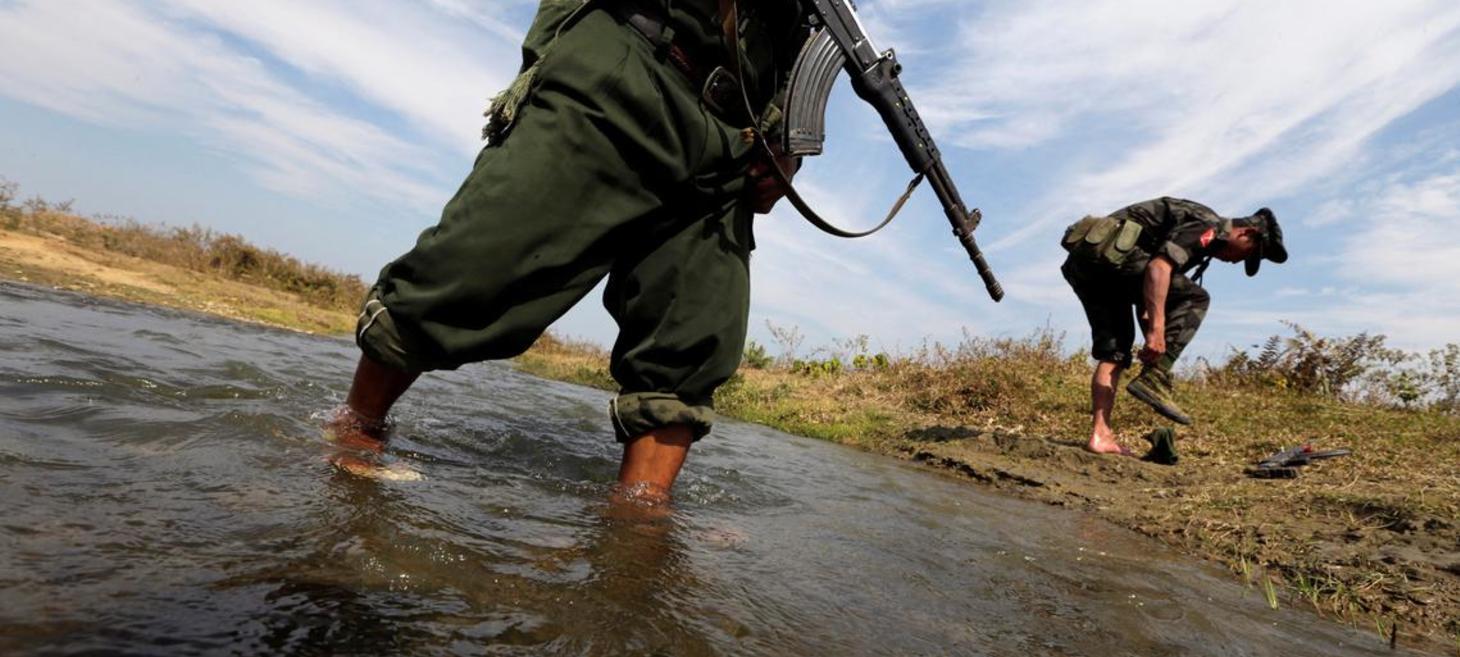
Why China’s ultimatum to Myanmar rebels threatens global supply of heavy rare earths
China has issued an ultimatum to the Kachin Independence Army (KIA) in Myanmar, threatening to halt purchases of heavy rare earths mined in KIA-controlled territory unless the militia ceases its efforts to seize the strategically vital town of Bhamo, underscoring Beijing's use of its mineral dominance for geopolitical aims. This ongoing conflict in Myanmar's Kachin state is significant because nearly half of the world's supply of heavy rare earths is extracted there, with China having a near-monopoly on their processing. As a result, fighting in the region has already restricted mining and rare-earth exports from Myanmar have plunged in 2025, leading analysts to warn of a potential global market deficit by the end of 2025 and possible price surges outside China.
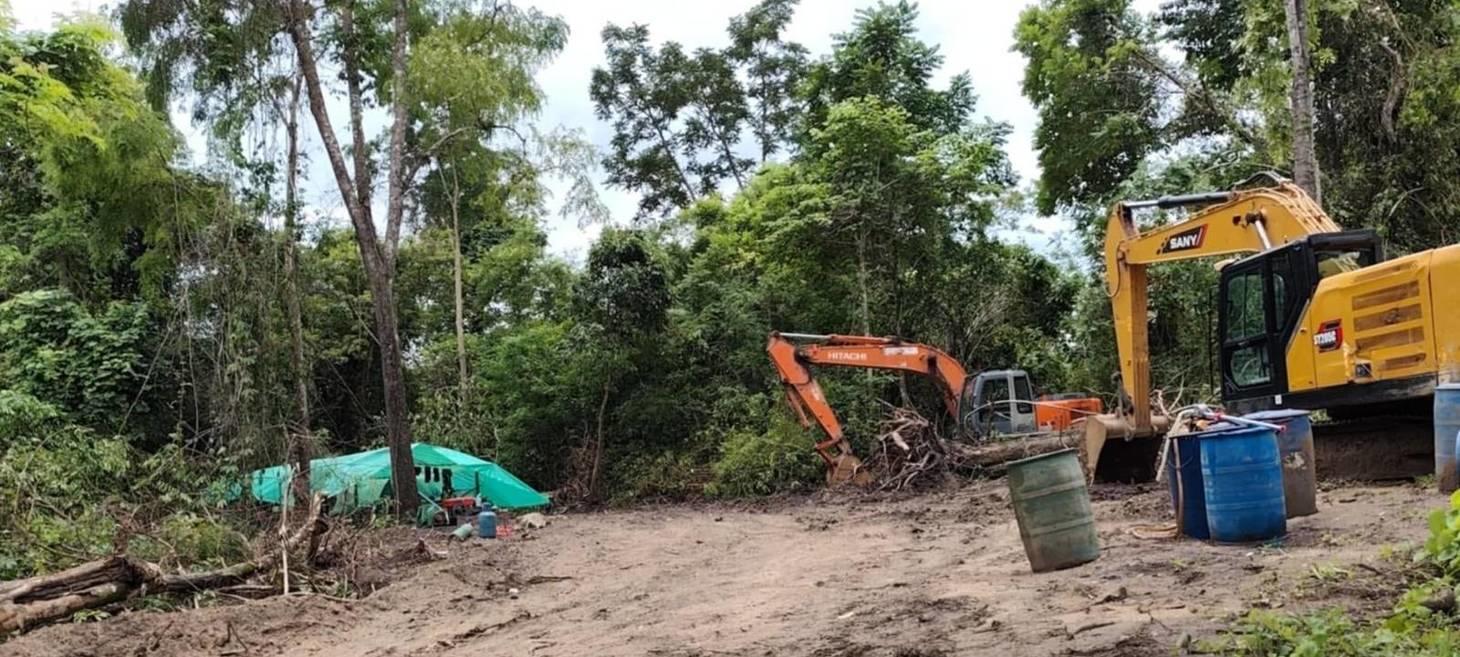
Villagers Order MNDAA Authorised Gold Miners to Leave
Villagers in Lashio Township, northern Shan State, have ordered gold miners operating with Myanmar National Democratic Alliance Army (MNDAA) permission to cease their activities and leave. The locals object to the mining because it is occurring at a site of religious significance and an important water source for agriculture, and despite initial agreements and multiple deadlines, the miners continued to dig. Although the MNDAA authorized the gold mining in Nampawng Subtownship and a neighboring village, locals assert that if the people do not accept it, the mining cannot proceed, and concerns about environmental harm also exist in other affected areas.
Weather & Environment
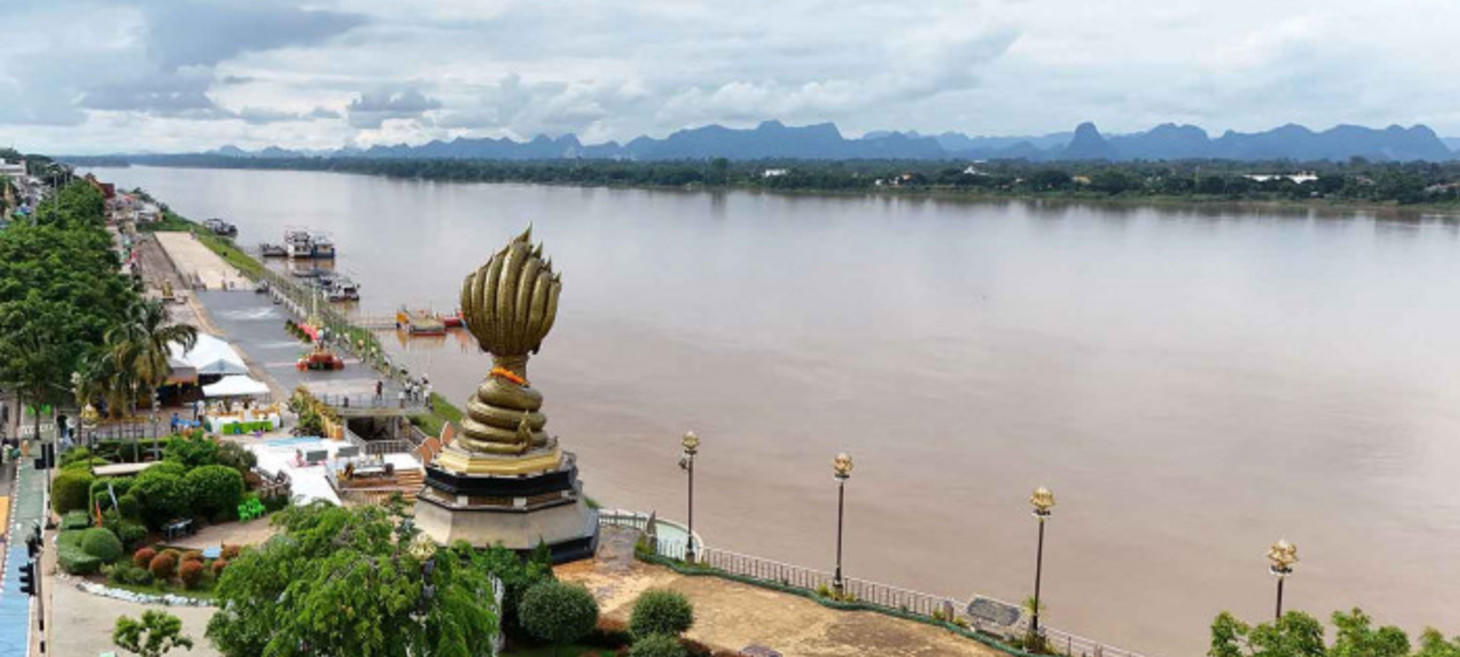
MRC detects heavy metal contamination along the Mekong
The Mekong River Commission (MRC) Secretariat has issued a warning about a "moderately serious" situation due to heavy metal contamination, specifically elevated arsenic levels, found in the Mekong River. This contamination is believed to stem from poorly regulated mining operations in a self-administered region of Myanmar, with significant arsenic concentrations detected in the stretch from the Myanmar–Laos border to Thailand's Chiang Khong district. In response, the MRC is planning joint assessments and a meeting to establish a monitoring plan and regional cooperation roadmap, while authorities advise the public to avoid using river water for household or agricultural purposes due to potential health risks.